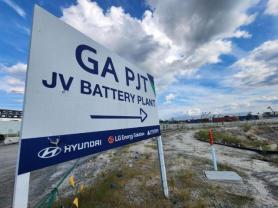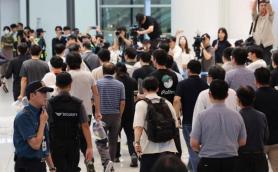
SEOUL, September 18 (AJP) - Despite Seoul's massive $350 billion investment pledge to Washington, a sweeping U.S. immigration raid early this month led to the detention of hundreds of South Koreans working at a joint electric vehicle battery plant under construction in Georgia. The incident severely disrupted South Korean companies' plans to send skilled workers to the U.S. for productivity and quality control.
The raid underscores the need for clear and consistent visa policies for business travelers amid U.S. President Donald Trump's strict immigration stance.
Many business travelers here commonly obtain the Electronic System for Travel Authorization (ESTA) to visit the U.S., as it allows them to stay for up to 90 days for non-commercial activities such as attending meetings and conferences.
However, frequent instances of travelers overstaying their visas or remaining in the country illegally appear to have led to the implementation of stricter controls and legal enforcement.
For business travel, visas like B1/B2, H1B, L1, and E2 are typically required, but their complicated and lengthy procedures make them difficult and slow to obtain. But each visa type comes with its own set of hurdles. B1/B2 visas, for instance, can take weeks to process and do not allow paid work in the U.S. H1B visas are subject to annual quotas, while L1 and E2 visas often require burdensome paperwork, which can be an obstacle especially for smaller companies.
To address these issues, many experts are proposing a special visa for South Korean workers, similar to Australia's E-3 or Singapore's H-1B1, visa programs that allow professionals in specialty occupations to work temporarily in the U.S.
By simplifying visa issuance procedures and reducing processing times, such a visa could further strengthen the bilateral alliance by enhancing economic cooperation and facilitating professional exchanges between the two countries.
Although immediate adjustments to visa and immigration policies may be difficult, the recent Georgia incident highlights the urgent need for practical solutions to ensure that South Korean companies do not suffer similar incidents or face disruptions to their U.S. operations due to visa issues.
* This article, contributed by Lee Won-gu, CEO of Prime Immigration in Seoul, was translated by AI and edited by AJP.
Copyright ⓒ Aju Press All rights reserved.




